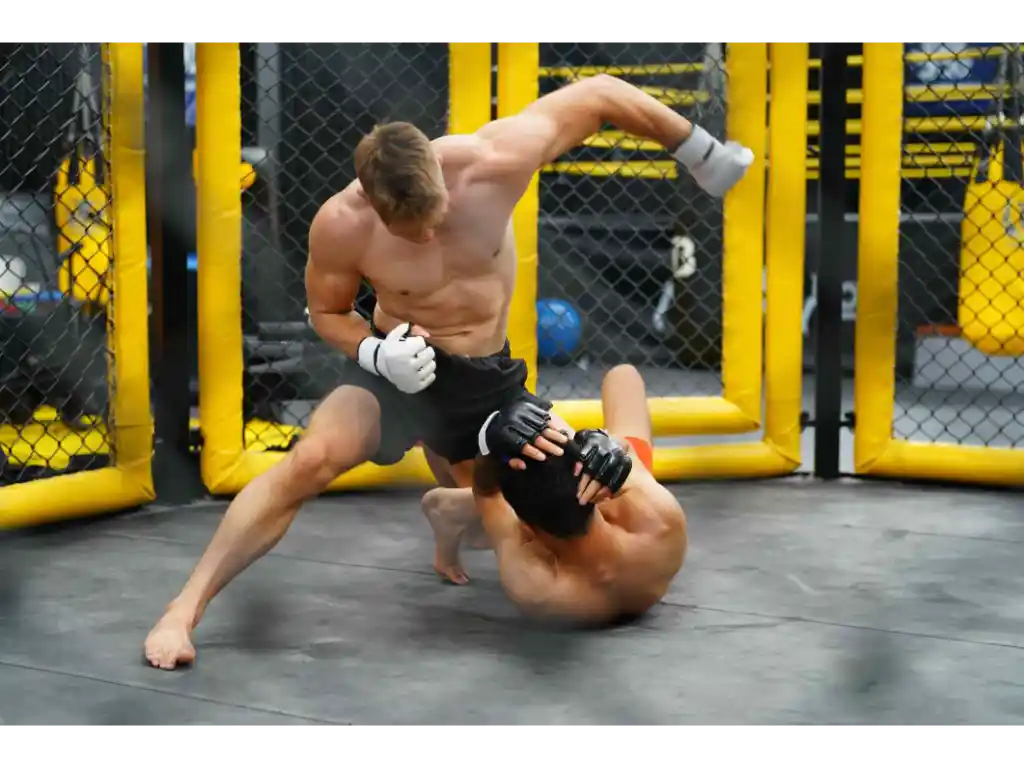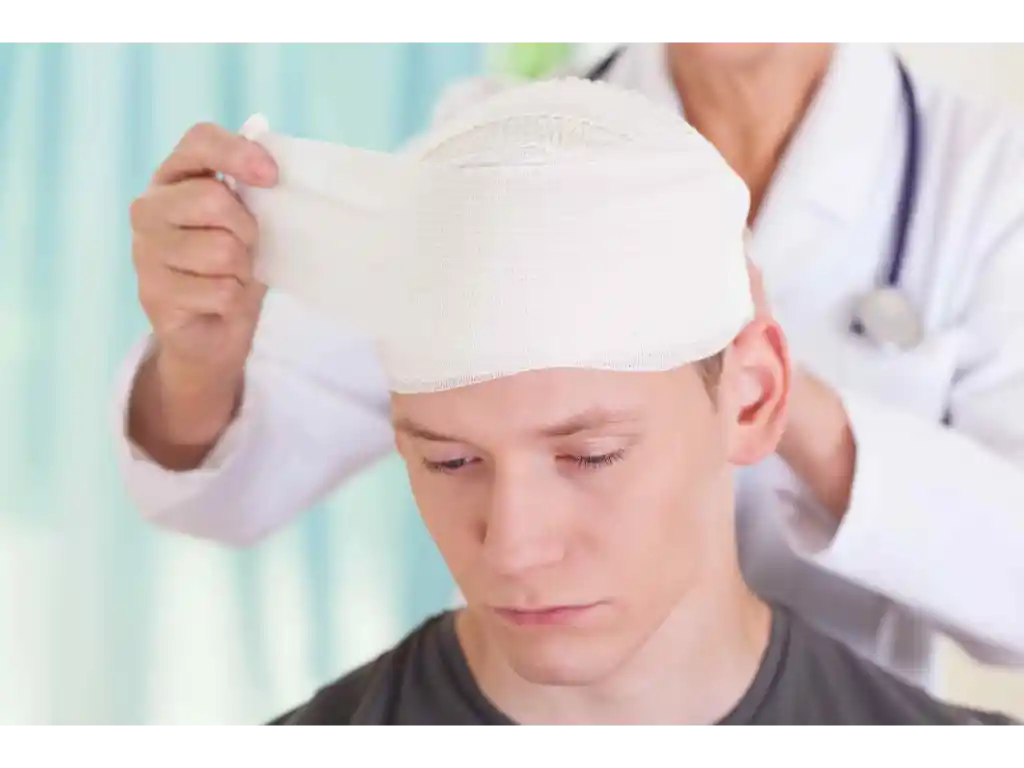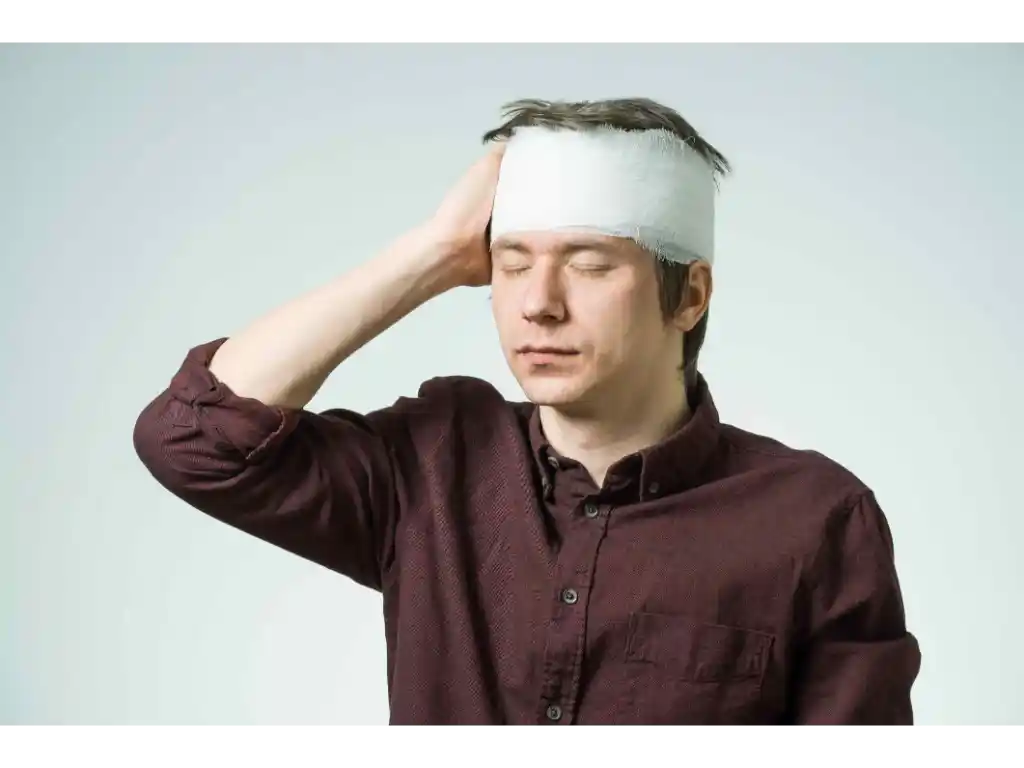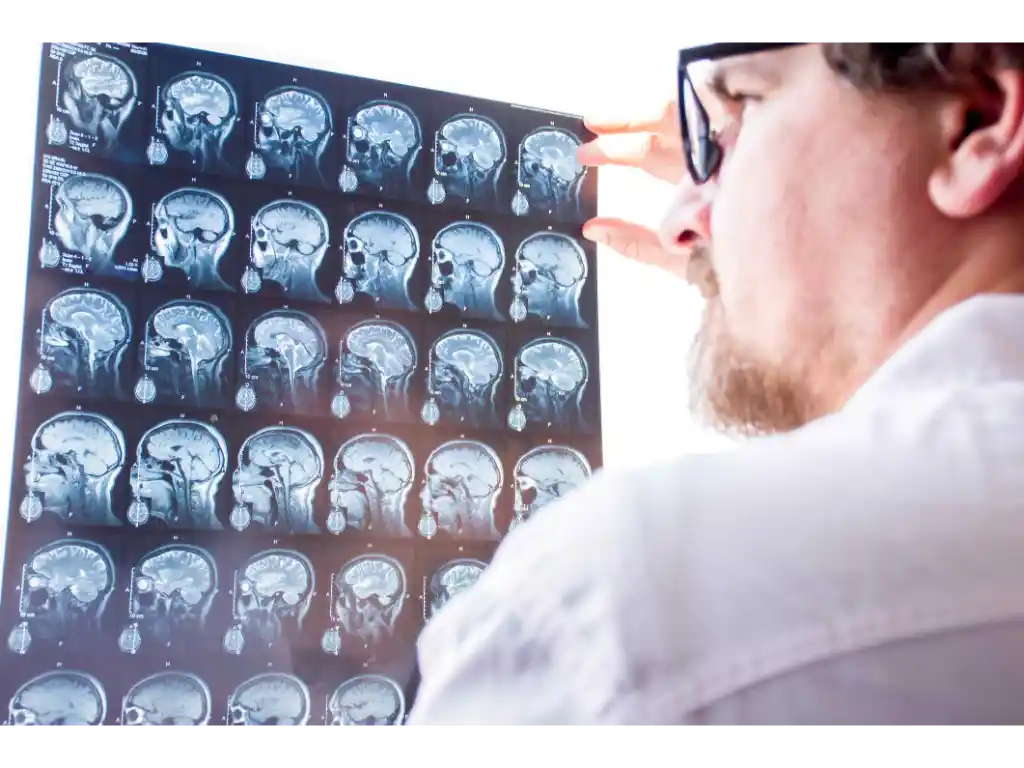
UFC President Says Company is Researching the Effects of Psychedelics to Treat TBI
Athletes who compete in contact sports are at serious risk of suffering traumatic brain injuries (TBI) whenever they compete. This is especially true for fighters competing in mixed martial arts (MMA), boxing, Muay Thai, and other combat sports (MMA). When it comes to combat sports, fighters know that once they step into the cage or ring, they are going to take a punch or kick to the head.
In fact, when former UFC fighter Spencer Fisher opened up to the media about his post-career health problems, which included lesions on his brain, UFC president Dana White had the following to say about Fisher’s unfortunate situation:
“He’s not the first and he’s definitely not gonna be the last. This is a contact sport. Anyone who has ever done this [when they were] younger, myself included, is dealing with brain issues. It’s part of the gig.”
The UFC is the preeminent mixed martial arts promotion in the world, and just like other major sports organizations, they are making efforts to better understand research regarding the causes and long-term effects of brain trauma and potential ways to treat these injuries that are common in combat sports athletes.
According to Marc Raimondi of ESPN, UFC has been in talks with Johns Hopkins University regarding its psychedelics research to see if micro-dosing can be a viable therapy for fighters dealing with serious brain issues. Speaking to Yahoo Sports, Dana White had the following to say about the fight promotion’s interest in TBI research:
“They’re micro-dosing psychedelics and they’re saying that it’s helping some of these guys with brain injuries. We’ve talked to Johns Hopkins and we’re working on getting us involved with that too. … The list goes on and on of all the things that we’ve done to try to improve the sport.”
According to Jeff Novitzky, UFC’s senior vice president of health and performance, White gave him a “directive” to look more into psychedelic research after viewing a segment from HBO’s Real Sports in December.
As Novitzky tells it, White told him, “Hey, find out what this is about.” Novitzky says UFC officials are interested in whether micro-dosing psychedelic drugs can help with some traumatic brain injury, addiction, and mental health problems. If it works, Novitzky says the UFC wants to be on board first.
Johns Hopkins leads the U.S. in research on the therapeutic effects of psychedelics like psilocybin (mushrooms) and LSD. The Johns Hopkins Center for Psychedelic & Consciousness Research was granted regulatory approval by the government in 2000 and has produced more than 60 pieces of peer-reviewed research on the subject.
According to the Johns Hopkins Center for Psychedelic & Consciousness Research website:
“Our research has demonstrated therapeutic effects in people who suffer a range of challenging conditions including addiction (smoking, alcohol, other drugs of abuse), existential distress caused by life-threatening disease, and treatment-resistant depression.”
Changing Views on Psychedelics to Treat Health Conditions
While psilocybin and other psychedelics are still classified by the government as illegal Schedule I drugs (drugs with a high potential for abuse or drugs that have no medical uses), the country’s views on psychedelics are changing. Just last year, the state of Oregon voted on and legalized psilocybin.
What Athletes Think About Psychedelics to Treat TBI
Ian McCall is a former UFC fighter who has participated in a psilocybin study with Johns Hopkins. McCall had the following to say when ESPN asked him about working with psychedelics to treat TBI:
“When you go into a cage, when you go into a ring and you fight and even football, you’re giving and receiving [post-traumatic stress syndrome] and no one wants to talk about it, but that’s what’s happening. Your trauma is stored in your tissue, so you’re actually giving and receiving PTSD while you’re in there and that’s a big reason why I work in psychedelics, to try and fix those exact things. We need to take care of these athletes a little better, just like we need to do with vets.”
Speak to a Sports Concussion Lawyer Today
Have you or someone you know suffered a traumatic brain injury during a sporting activity or competition? If so, please reach out to our experienced legal team at Scarlett Law Group so we can review the details of your situation and determine which parties can be held liable for your damages. We are familiar with these types of cases, and we are prepared to put our extensive resources and knowledge of the law to work so you can pursue justice.
Give us a call today at 415-688-2176, or contact us online to schedule your free case consultation.
Ask A Question,
Tell Us Your Situation, &
Get A Free Consultation
Contact Us & We’ll Guide You Through Your
Next Steps!
Required Fields*
Your Information Is Safe With Us.
We respect your privacy. The information you provide will be used to answer your question or to schedule an appointment if requested.
UFC President Says Company is Researching the Effects of Psychedelics to Treat TBI

Athletes who compete in contact sports are at serious risk of suffering traumatic brain injuries (TBI) whenever they compete. This is especially true for fighters competing in mixed martial arts (MMA), boxing, Muay Thai, and other combat sports (MMA). When it comes to combat sports, fighters know that once they step into the cage or ring, they are going to take a punch or kick to the head.
In fact, when former UFC fighter Spencer Fisher opened up to the media about his post-career health problems, which included lesions on his brain, UFC president Dana White had the following to say about Fisher’s unfortunate situation:
“He’s not the first and he’s definitely not gonna be the last. This is a contact sport. Anyone who has ever done this [when they were] younger, myself included, is dealing with brain issues. It’s part of the gig.”
The UFC is the preeminent mixed martial arts promotion in the world, and just like other major sports organizations, they are making efforts to better understand research regarding the causes and long-term effects of brain trauma and potential ways to treat these injuries that are common in combat sports athletes.
According to Marc Raimondi of ESPN, UFC has been in talks with Johns Hopkins University regarding its psychedelics research to see if micro-dosing can be a viable therapy for fighters dealing with serious brain issues. Speaking to Yahoo Sports, Dana White had the following to say about the fight promotion’s interest in TBI research:
“They’re micro-dosing psychedelics and they’re saying that it’s helping some of these guys with brain injuries. We’ve talked to Johns Hopkins and we’re working on getting us involved with that too. … The list goes on and on of all the things that we’ve done to try to improve the sport.”
According to Jeff Novitzky, UFC’s senior vice president of health and performance, White gave him a “directive” to look more into psychedelic research after viewing a segment from HBO’s Real Sports in December.
As Novitzky tells it, White told him, “Hey, find out what this is about.” Novitzky says UFC officials are interested in whether micro-dosing psychedelic drugs can help with some traumatic brain injury, addiction, and mental health problems. If it works, Novitzky says the UFC wants to be on board first.
Johns Hopkins leads the U.S. in research on the therapeutic effects of psychedelics like psilocybin (mushrooms) and LSD. The Johns Hopkins Center for Psychedelic & Consciousness Research was granted regulatory approval by the government in 2000 and has produced more than 60 pieces of peer-reviewed research on the subject.
According to the Johns Hopkins Center for Psychedelic & Consciousness Research website:
“Our research has demonstrated therapeutic effects in people who suffer a range of challenging conditions including addiction (smoking, alcohol, other drugs of abuse), existential distress caused by life-threatening disease, and treatment-resistant depression.”
Changing Views on Psychedelics to Treat Health Conditions
While psilocybin and other psychedelics are still classified by the government as illegal Schedule I drugs (drugs with a high potential for abuse or drugs that have no medical uses), the country’s views on psychedelics are changing. Just last year, the state of Oregon voted on and legalized psilocybin.
What Athletes Think About Psychedelics to Treat TBI
Ian McCall is a former UFC fighter who has participated in a psilocybin study with Johns Hopkins. McCall had the following to say when ESPN asked him about working with psychedelics to treat TBI:
“When you go into a cage, when you go into a ring and you fight and even football, you’re giving and receiving [post-traumatic stress syndrome] and no one wants to talk about it, but that’s what’s happening. Your trauma is stored in your tissue, so you’re actually giving and receiving PTSD while you’re in there and that’s a big reason why I work in psychedelics, to try and fix those exact things. We need to take care of these athletes a little better, just like we need to do with vets.”
Speak to a Sports Concussion Lawyer Today
Have you or someone you know suffered a traumatic brain injury during a sporting activity or competition? If so, please reach out to our experienced legal team at Scarlett Law Group so we can review the details of your situation and determine which parties can be held liable for your damages. We are familiar with these types of cases, and we are prepared to put our extensive resources and knowledge of the law to work so you can pursue justice.
Give us a call today at 415-688-2176, or contact us online to schedule your free case consultation.
Post tags
Table of contents
Related Blog Posts

Traumatic Brain Injury May Be a Risk Factor for Schizophrenia
Mental disorders are one of the most common outcomes of traumatic brain injury (TBI). About 1 in 3 individuals who sustain a TBI will develop depression in the following six months, and about half will…

Noise Sensitivity Following Mild Traumatic Brain Injury is a Predictor of Long-Term Post-Concussive Symptoms
The symptoms associated with mild traumatic brain injury (mTBI), also called concussion, typically resolve within a few weeks. One of the most common symptoms is noise sensitivity, which can cause discomfort and distress in loud,…

Is a Neuropsychological Exam Necessary After Suffering a Brain Injury?
After a person suffers a minor or severe brain injury, doctors often use MRI or C.T. scans to help identify lesions and determine if there is any neurocognitive dysfunction. However, even with a C.T. scan…

